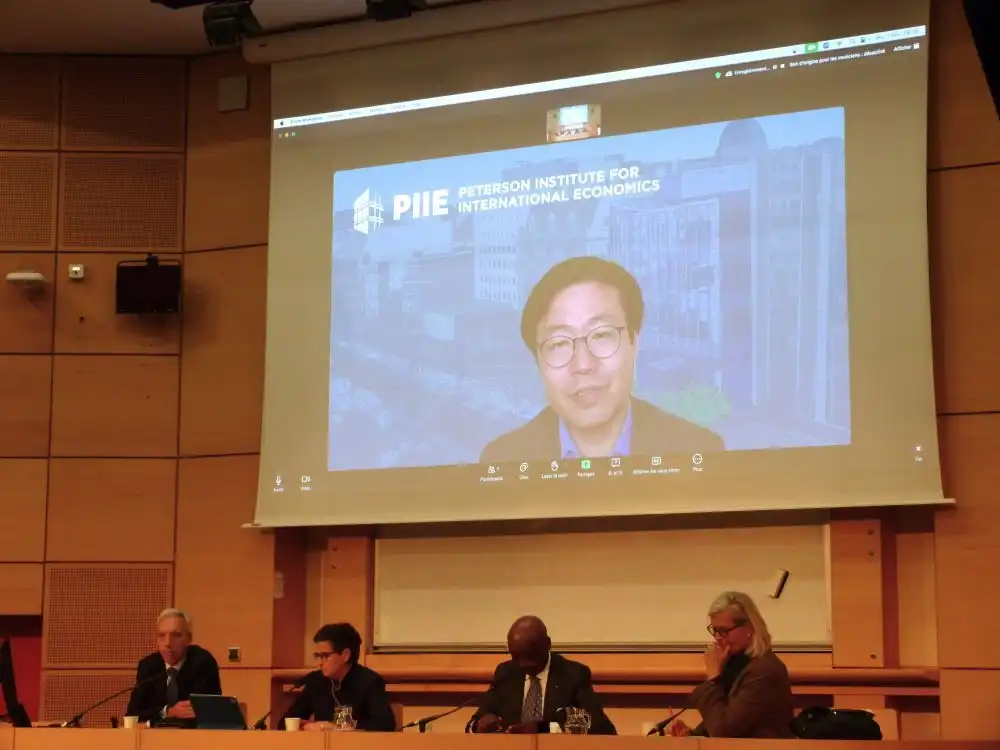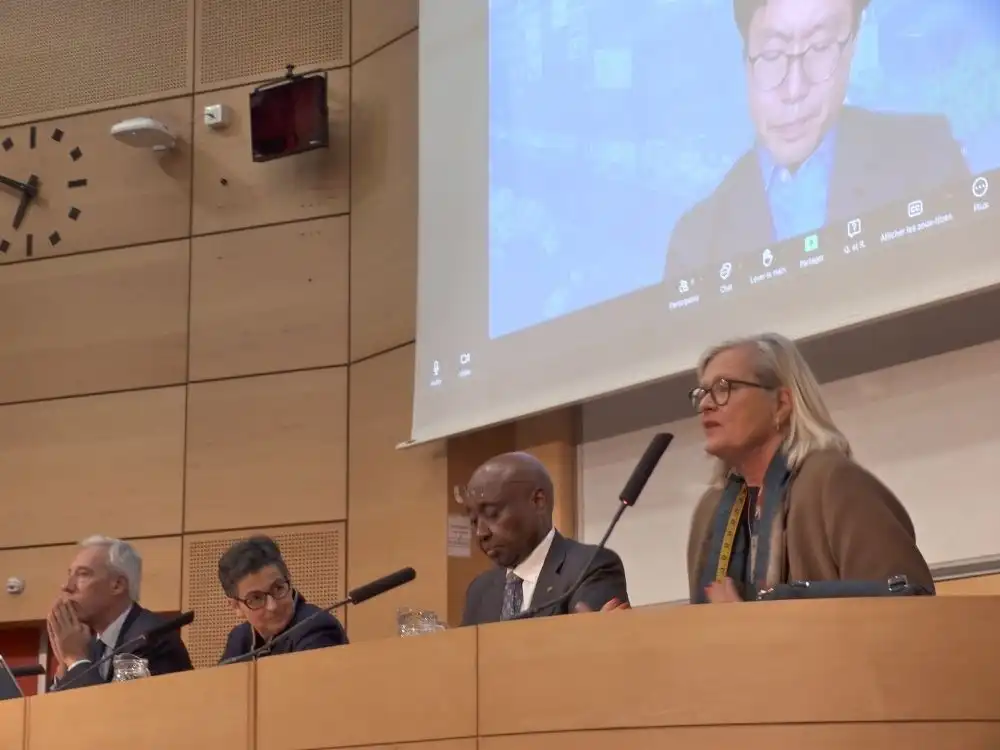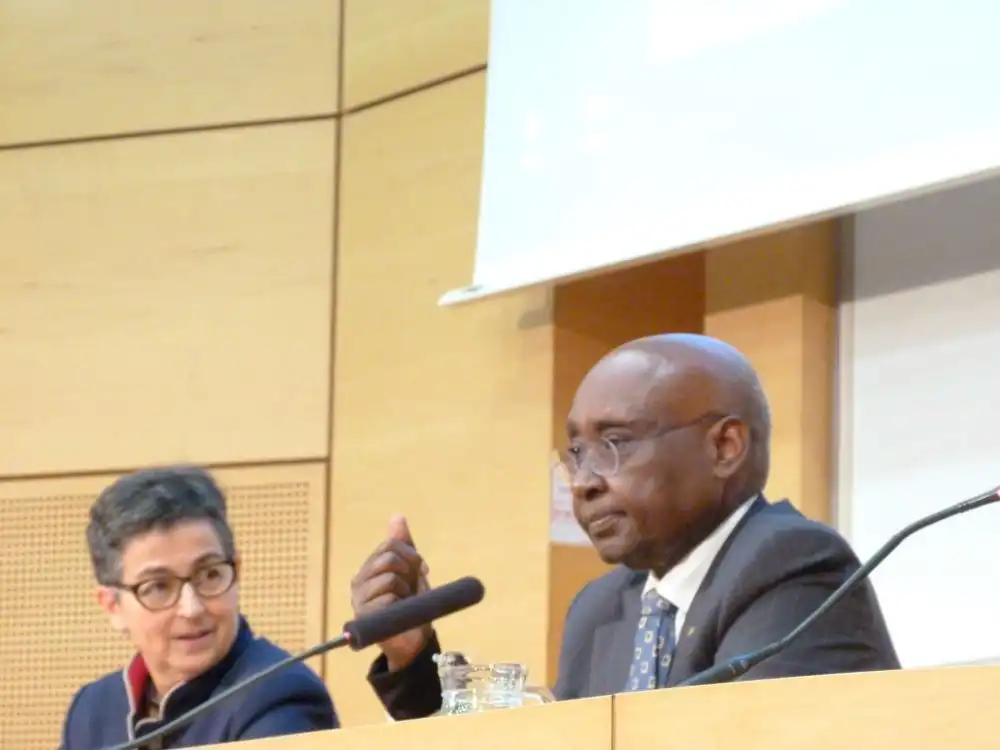Home>Global Leaders at PSIA Discuss the Future of US Foreign Policy
13.11.2024
Global Leaders at PSIA Discuss the Future of US Foreign Policy
On 7 November, less than 48 hours after Donald Trump’s re-election as President of the United States, the Paris School of International Affairs (PSIA) held a timely event on The Future Direction of US Foreign Policy. The panel brought together distinguished former ministers from Africa, Asia and Europe. Along with PSIA Dean Arancha González they offered an assessment of the potential global ramifications of Trump’s second term.
The event featured Ursula Plassnik, former Minister of Foreign Affairs of Austria; João Cravinho, former Portuguese Minister of Foreign Affairs and National Defense; Yeo Han-koo, former Minister of Trade of the Republic of Korea and Donald Kaberuka, former Minister of Finance of Rwanda and ex-president of the African Development Bank. Together, they provided a global perspective on how Trump’s renewed administration could reshape international relations, trade, security, and multilateral cooperation.
Europe’s Challenges: Sovereignty; Security and Competitivity
Ursula Plassnik noted that Trump’s second term promises to be more radical and unrestrained than his first, marking a significant challenge for Europe. According to Plassnik, the European Union (EU) must confront the limits of its governance model to confront Trump's style of "deal-making". She expressed concerns about the EU’s declining economic competitiveness, calling for urgent improvements to preserve Europe’s influence on the global stage.
Plassnik asserted that Europe can no longer rely on U.S. support as consistently as in the past, especially regarding defense and regional stability in areas like Ukraine and the Sahel.
João Cravinho delivered a stark assessment of the implications for Europe’s defense and security. Trump’s re-election, he said, “accelerates the urgency for Europe to assume a more self-sufficient defense posture.”
He proposed innovative financing mechanisms, such as a common debt for defense purposes, to bolster Europe’s strategic autonomy. Cravinho emphasized that Europe must also define a clear security strategy, which will be the point of the next “joint threat assessment”.
Africa’s Stake in a Multipolar World
Donald Kaberuka discussed Africa’s place in a rapidly shifting global landscape, where U.S. policy changes might only marginally affect the continent. While some policies may evolve, Kaberuka predicted a continuation of U.S. priorities. However, he emphasized the broader implications of the shifting balance of power: “The world is entering a new era marked by technological, energy, and climate transitions, and Africa needs global institutions to address these new challenges.” Kaberuka underscored that reform of these institutions must come not only from the U.S. but also from Europe and other leading economies.
Asia’s Outlook: A Bold ‘America First’
Yeo Han-koo underscored the steadfast alignment of Trump’s second-term policies with his “America First” doctrine, particularly on trade. He noted that the Trump administration’s robust electoral support suggests a strong mandate for policies that prioritize U.S. manufacturing and competitiveness, often at the expense of international agreements. Han-koo highlighted potential challenges in trade, including inflationary pressures, tax reforms, and even punitive tariffs, which could have far-reaching impacts on global supply chains and the high-tech sector.
“Trump 2.0 is bolder and clearer in his objectives,” said Han-koo.
A Defining Moment for Transatlantic Relations
As the session closed, Arancha González, PSIA Dean, highlighted the broader implications of the forum’s discussions, stressing the critical juncture facing the international community. The panelists agreed that Europe, Africa, and Asia must be prepared to engage with a more assertive and unilateral U.S. foreign policy. They cautioned that the world must adapt to a new era of multipolarity and tackle the urgent challenges of climate change, technological advancement, and global economic shifts with innovative diplomacy and collaboration.
As the world watches the U.S. forge its path over the next four years, leaders on every continent are left with a clear call to action: to reassess, recalibrate, and reinforce their own strategies in an era defined by unprecedented change and complexity.


